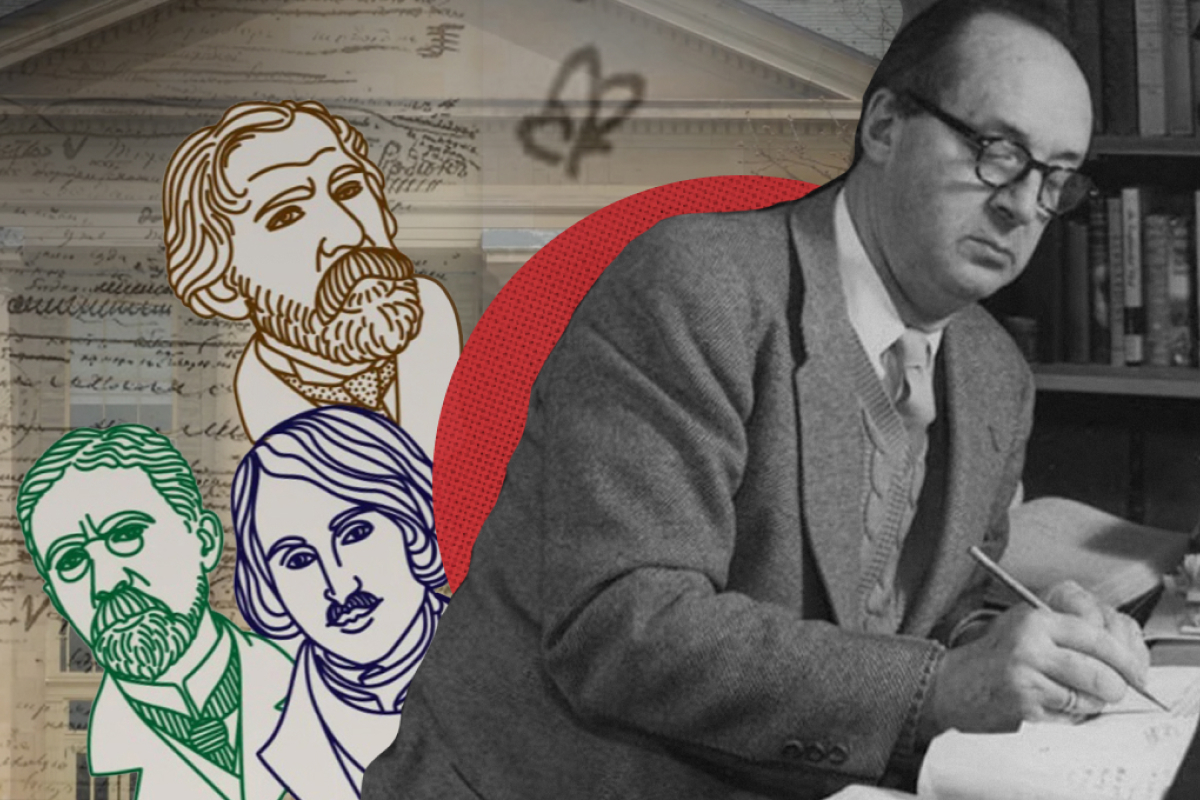Vladimir Nabokov and His Lectures on Russian and Foreign Literature

The Representative Office of St Petersburg University in Spain invites you to a lecture titled ’Vladimir Nabokov and His Lectures on Russian and Foreign Literature’, delivered by Candidate of Philological Sciences Nina Shcherbak.
According to Vladimir Nabokov himself, in 1940, before beginning his teaching career in America, he ’fortunately did not regret spending the time to write one hundred lectures—around two thousand pages—on Russian literature... This sufficed for twenty academic years at Wellesley and Cornell’.
These lectures, each meticulously adapted to fit the American fifty-minute class format, were written between Nabokov’s arrival in the United States in May 1940 and his first teaching experience—a course on Russian literature at Stanford University’s summer school, which he delivered in 1941.
In the autumn semester of the same year, Nabokov secured a permanent position at Wellesley College, where he became the sole faculty member in the Russian Studies department. Initially, he taught courses on Russian stylistics and grammar, later expanding to a survey course on Russian literature in translation (’Russian Literature 201′).
In 1948, he moved to Cornell University, where he was appointed Associate Professor in the Department of Slavic Studies and taught the lecture courses ’Masters of European Prose’, (’Literature 311—312′) and ’Russian Literature in Translation’ (’Literature 325—326′).
Lectures on Russian writers were part of (occasionally slightly modified versions of) these two courses. The ’Masters of European Prose’ course typically included Jane Austen, Nikolai Gogol, Gustave Flaubert, Charles Dickens, and occasionally Ivan Turgenev; the second semester Nabokov devoted to Leo Tolstoy, Robert Louis Stevenson, Franz Kafka, Marcel Proust, and James Joyce.
Sections on Fyodor Dostoevsky, Anton Chekhov, and Maxim Gorky belonged to the ’Russian Literature in Translation’ course. According to Nabokov’s son, Dmitri, this course also covered minor Russian writers, though lecture notes on them have not survived.
Most of the lectures were handwritten by Nabokov, with occasional typed inserts by his wife, Véra, to aid readability. However, some texts were entirely handwritten—notably the lectures on Stevenson and Kafka, as well as nearly the entire section on Joyce. The section on Dickens’ ’Bleak House’ is notably heterogeneous, though handwritten text still predominates.
Since the manuscript pages retain all marks of the original draft, Nabokov had the opportunity to revise and expand them in all directions—both during rewriting and subsequent reviews, when he adjusted the style and content of his lectures for various reasons.
Lecturer
Nina Shcherbak is an Associate Professor in the Department of English Philology and Cultural Linguistics at St Petersburg University, with a Master of Arts degree from the United Kingdom. A prolific writer and screenwriter, Shcherbak is also a scriptwriter for popular science TV shows and the author of fifteen monographs and several books on linguistics, literature, philosophy of language, and English literature.
The lecture will be held online in Russian with simultaneous interpreting into Spanish.

